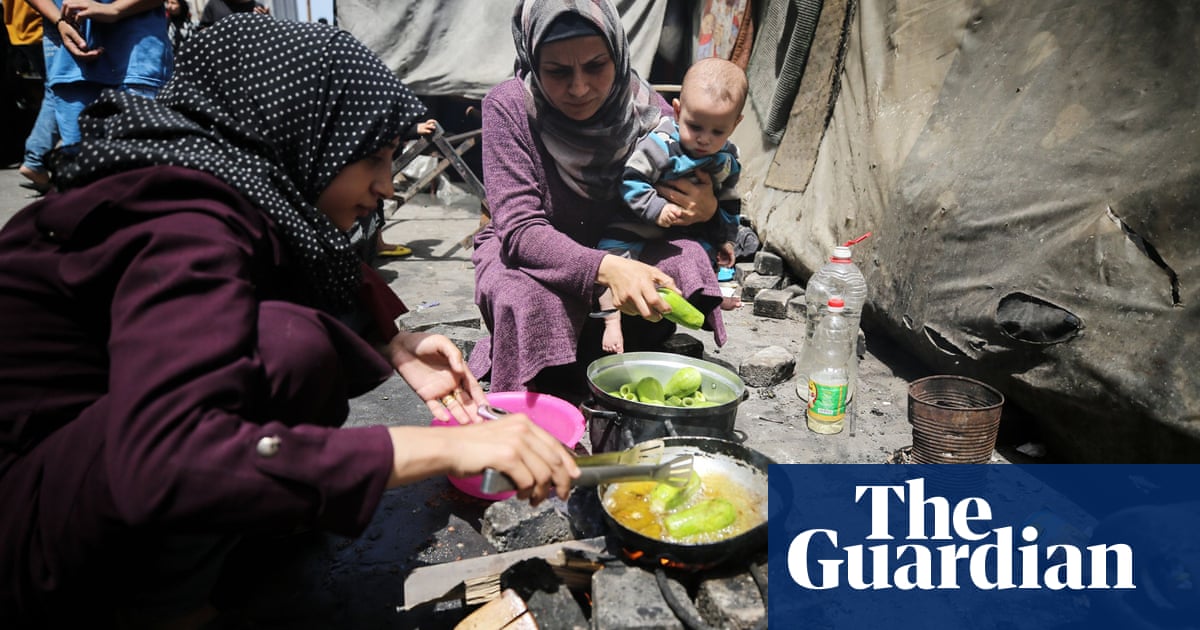
Germany has said it will restore cooperation and funding to Unrwa operations in the Gaza Strip after an independent review said Israel had not provided evidence to back up claims that hundreds of employees of the UN agency for Palestinians were members of terrorist organisations.
Berlin’s foreign and development ministries said in a joint statement on Wednesday that following Monday’s publication of the review, conducted by the former French foreign minister Catherine Colonna, the German government would soon resume cooperation with the UN’s Relief and Works Agency for Palestinian refugees (Unrwa).
Germany’s decision follows those made earlier by several other major donors, including Australia, Canada, Sweden and Japan, to restore ties with Unwra after the Israeli government claimed in January that members of the agency had been involved in planning and carrying out the Hamas attack of 7 October that triggered the now-six-month-old war in Gaza.
The absence so far of evidence presented to underpin Israel’s allegations has raised questions about the snap decision by 19 donor governments to cut millions of dollars of funding to Unrwa, the main channel for humanitarian support for Palestinians, even as the death toll in Gaza soared, the health system collapsed and famine began to loom.
In the UK, ministers have said they would await publication of the Colonna report to make a decision on resuming funding: the UK provided £35m last financial year to Unrwa, including £16m extra for humanitarian aid. The US, previously the agency’s biggest donor, provided £340m to the agency in 2023 – nearly 30% of its total funds – but further financial support has been blocked by Congress for at least a year in the wake of Israel’s allegations.
Colonna’s report, which was commissioned by the UN, found that Unrwa had regularly supplied Israel with lists of its employees for vetting, and that “the Israeli government has not informed Unrwa of any concerns relating to any Unrwa staff based on these staff lists since 2011”.
Berlin on Wednesday urged Unrwa to swiftly implement the report’s recommendations, which include strengthening its internal audit function and improving external oversight of project management.
Germany had already restored funding for Unrwa’s work with Palestinian refugee communities outside Gaza. A separate investigation is being carried out into the 7 October attack by the UN’s office of internal oversight services. The UN said that inquiry had not yet been completed.
In response to the report’s publication on Monday, an Israeli foreign ministry spokesperson, Oren Marmorstein, accused more than 2,135 Unrwa workers of being members of Hamas or Palestinian Islamic Jihad. He said the Colonna review was insufficient and an “effort to avoid the problem and not address it head on”.
The Colonna review comes as Israel prepares to send troops into Gaza’s southernmost town of Rafah, the only corner of the strip that has not seen fierce ground fighting and where more than half of the Palestinian territory’s population of 2.3 millions have sought shelter.
The Israeli prime minister, Benjamin Netanyahu, and his war cabinet are expected to meet in the next two weeks to authorise civilian evacuations, which are expected to take about a month, as the first stage of the Rafah offensive.
On Wednesday, the Israeli military said two reservist brigades had been mobilised for missions in Gaza. Video circulated online appeared to show rows of square white tents going up in the city of Khan Younis, 3 miles (5km) from Rafah. The Israel Defense Forces (IDF) said last week it was acquiring 40,000 tents to prepare for the evacuation of hundreds of thousands of displaced civilians.
Any major ground operation in Rafah would almost certainly need to be coordinated with Washington and Cairo, given the town’s sensitive location on the Egyptian border.
The long-threatened Israeli plan has drawn intense opposition from allies, including the US, which says it will cause thousands of civilian casualties as displaced people have nowhere else to go. Israel says that Hamas’s leadership, and Israeli hostages, are also in Rafah, along with four battalions of fighters.
Ceasefire talks mediated by the US, Cairo and Doha have all but collapsed as Israel and Hamas have been unable to agree on the conditions and length of a truce and the identities and numbers of Israeli hostages to be released in exchange for freeing Palestinians held in Israel jails. A ceasefire held at the end of November collapsed after a week.
More than 34,000 Palestinians have been killed in the latest war between Israel and Hamas, according to the health ministry in the militant-run territory. About 1,200 Israelis were killed and 250 taken hostage in the 7 October attacks that sparked the war, according to Israeli data.